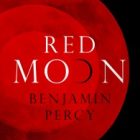“Free Ploughshares” Review: Winter 1995-1996

Issue: Winter 1995/1996
This is a review of a back issue of Ploughshares. The author won our “Free Ploughshares” contest that we hosted earlier this year and agreed to review his/her free issue. This post was written by A.J. Kandathil. Enjoy!
As a writer who recently finished an MFA program, I’ve listened to my fair share of discussions about why a word like chaos tends to be a “no-no word.” Along with other terms like depression, happiness, and love, we use these words so often that they’ve been drained of meaning. If that’s the case, then what is a writer to do when he or she truly feels sad? Or happy? A professor once gave my class some instrumental advice: “Make depression a room,” she said. “One we can sit in, something we can touch.”
If chaos were a room, the Winter ’95-’96 issue of Ploughshares edited by Tim O’Brien and Mark Strand would be it. Refreshingly free from abstraction, this collection has no hint of elegy as we’ve come to expect it. Instead, we find the stuff of life—PTA meetings, decks of cards, and pick-up trucks.
The issue begins with Lee K. Abbott’s “A Creature Out of Palestine,” a comic spin on the finer points of corporal punishment for immature, feckless men. The narrator, a guy you wouldn’t mind sharing a beer with but would never ask to change your tires, describes the day he got an old-fashioned, over-the-knee spanking from a man more like the Lone Ranger than a strict mother wielding a wooden spoon. Abbott’s punchy tone is a riot from beginning to end, and this story has all the camp-fire-worthy makings of a desert legend.
One of my favorite poems was Oksana Zabuzhko’s “Prypiat—Still Life,” a portrait of an empty room on the outskirts of Chernobyl. I was struck by the absent presence left behind in the room—the suit not yet deflated from the body that wore it, the smoking ashtrays, the apple that was “bitten but not brown.” I found her chilling descriptions not only haunting, but also romantic.
Similarly, Wyn Cooper writes his own poem of invisible impressions. In “Talk,” intimate disagreements leave their marks on the body; shape-shifting scars take on the silhouettes of mouths as evidence of words not spoken.
At the collection’s close, the narrator of Joyce Carol Oates’ “Easy Lay” is a brassy adolescent who mistakes self-destruction for fun. The piece reads like a juicy transcript of a conversation overheard in the women’s bathroom at a pre-teen beauty pageant. But this short piece isn’t just a saucy return to the perils of teenage romance. Oates shows us how a clever title like “Easy Lay” infuses complexity into the story that follows.
This issue doesn’t seek to fix, justify, or dilute the chaos inherent to life. Instead, these writers have faithfully captured the angles from which we see our own victories, losses, and shortcomings, giving chaos—as Edward Hardy writes—“a corner of its own.”
A writer of both fact and fiction, A.J. Kandathil recently received a Pushcart nomination and the runner-up prize for Ruminate Magazine’s annual nonfiction contest. Additionally, her work can be seen in Burner Magazine, Precipitate, and The Quotable. She teaches writing at the Arts Council of Princeton and is currently writing a memoir.



